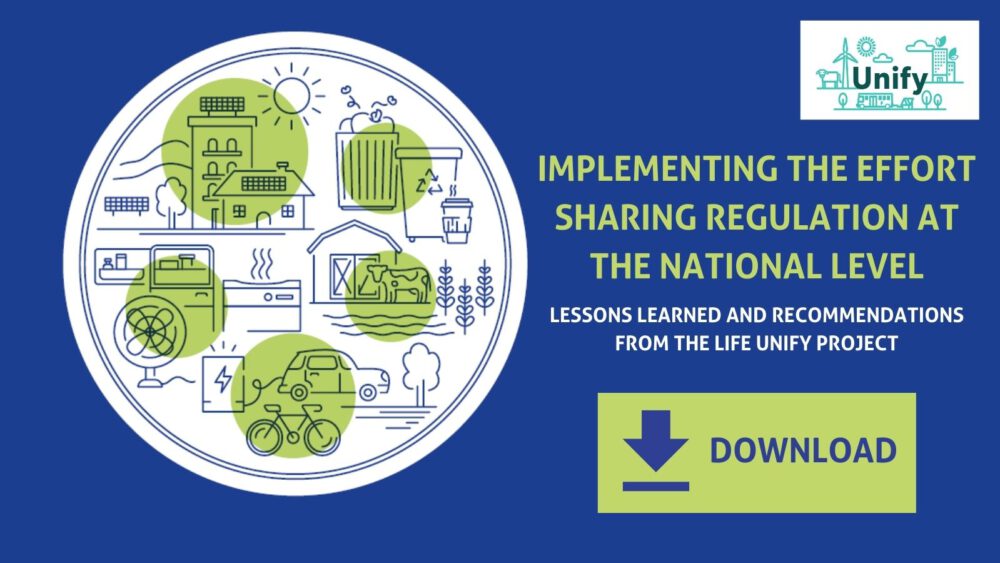Life Unify Consortium launches a new report highlighting key recommendations to strengthen and improve the EU Effort Sharing Regulation
March 2022
The LIFE Unify Consortium has launched a new report titled “Implementing the Effort Sharing Regulation at the national level. Lessons learned and recommendations from the LIFE Unify project”. The detailed report provides recommendations on how to strengthen and improve the revised regulation based on the experiences collected at the national level. Based on the experiences collected by the LIFE Unify project consortium partners, the report conducts a detailed assessment of policies and measures adopted in ESR sectors in 8 EU countries–Croatia, Czechia, Estonia, Germany, France, Poland, Slovenia and Spain– focusing specifically on effective measures and best practices.
The Effort Sharing Regulation (ESR) sets legally binding emission reduction targets for each EU Member State for the sectors not covered by the EU’s Emissions Trading Scheme (ETS). These non-ETS sectors are responsible for nearly 60% of the EU’s total greenhouse gas emissions and include road transport, buildings, agriculture, waste and small industry. The Commission’s proposal for the revision of the ESR raises the EU’s overall emissions reduction target from 30% to 40% by 2030. Despite being an improvement, this target is still far from being aligned with the Paris Agreement goal – for which overall at least 50% emission cuts would be needed by 2030 in ESR sectors.
The new report, launched today (March 14 2022) finds that maintaining and strengthening nationally binding emission reduction targets under the ESR (also post-2030) is of the utmost importance; the report also makes the case for improving national governance and support structures to implement these targets, as well as for strengthening EU sectoral regulations.
Read and download the full report below



